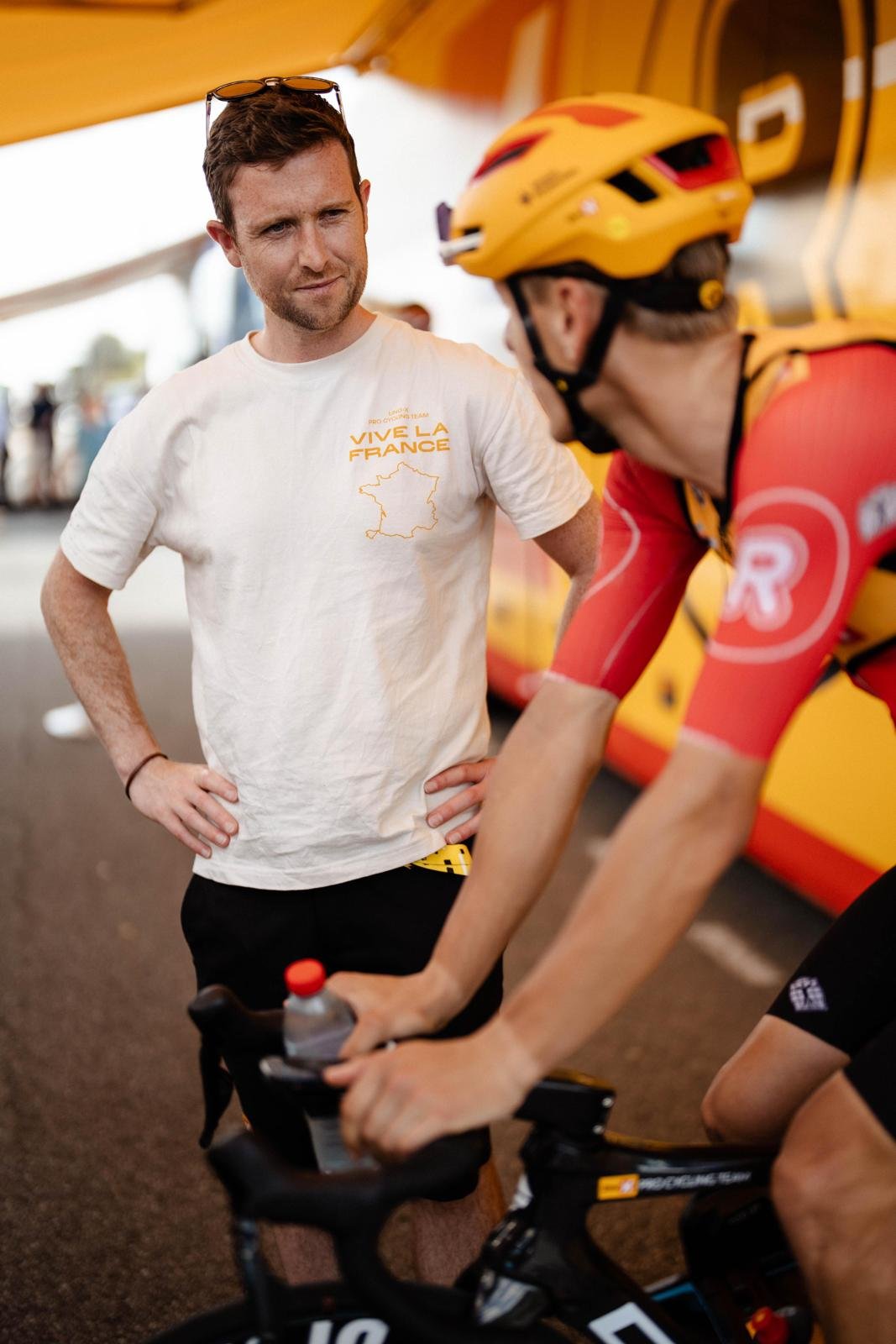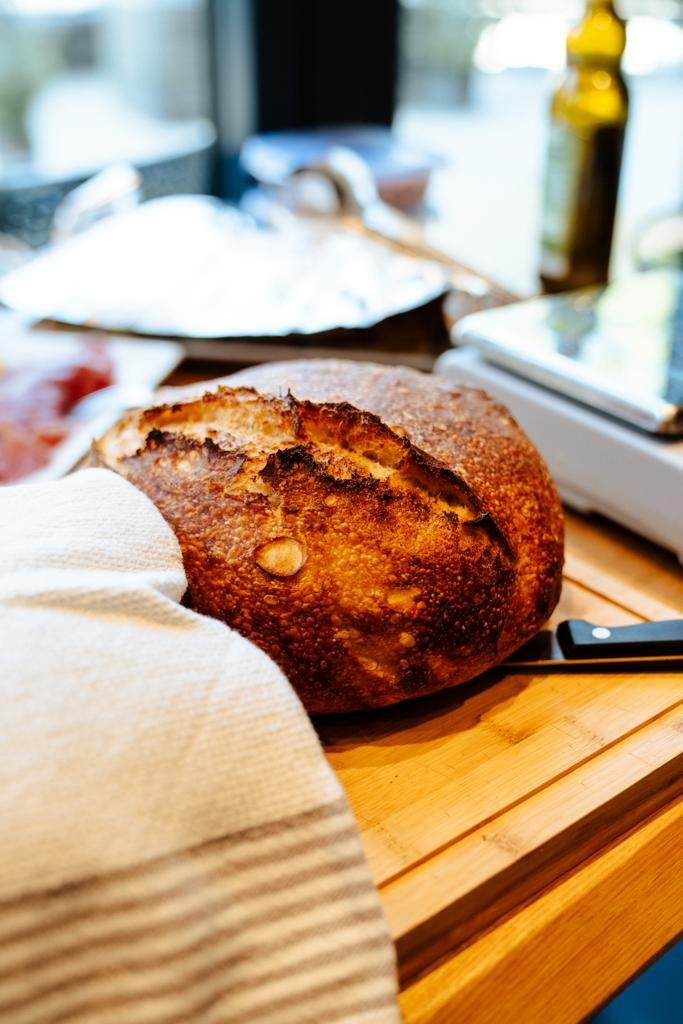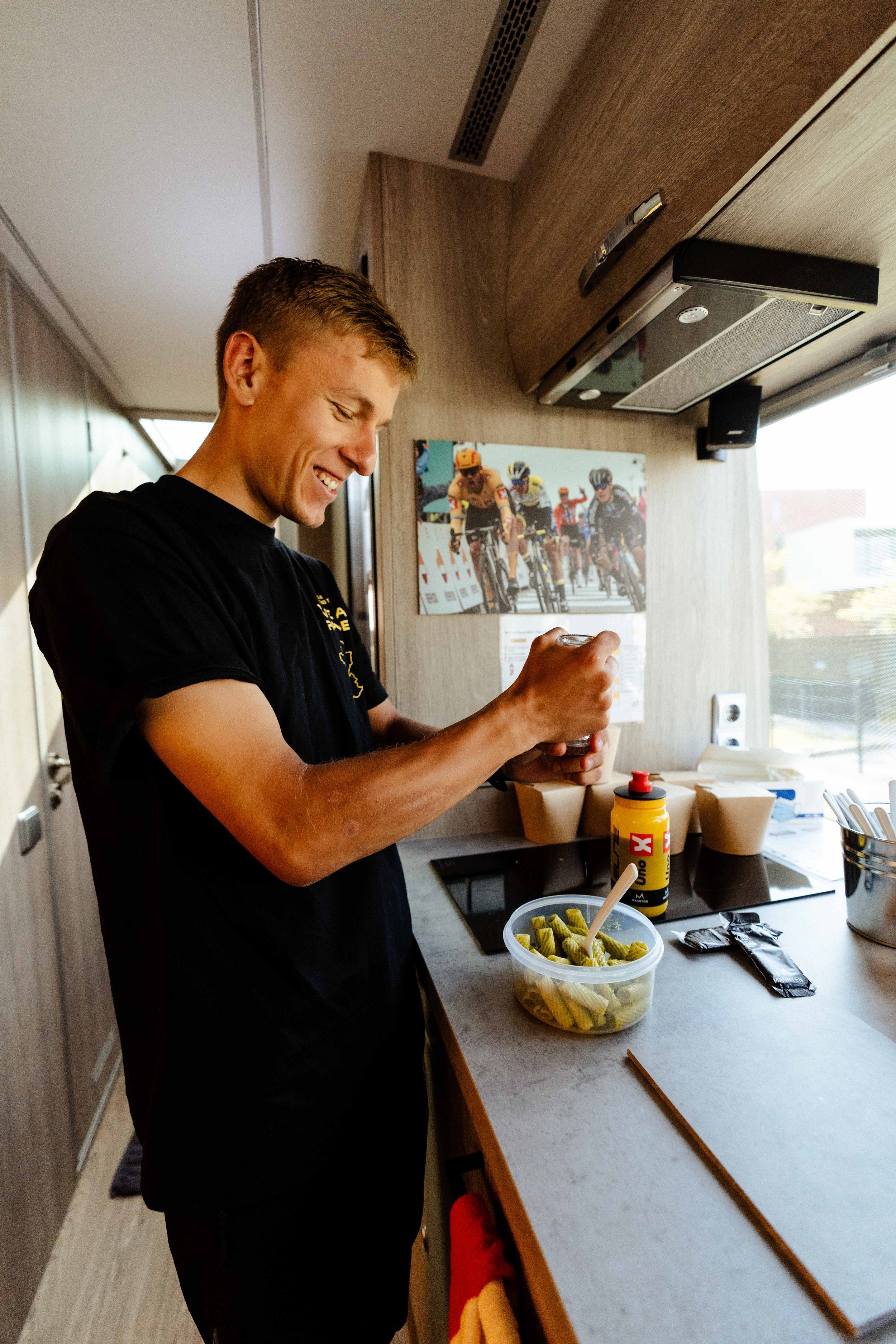Nutrition in a Grand Tour
Nutrition in a Grand Tour is a critical factor in maintaining the health and performance levels of our riders. Racing 21 days in the mountains and heat of France places a huge stress on the body and the ability to recover each day is the key to surviving (and hopefully thriving) over the 3 weeks.
Riders can burn anywhere between 2500-7000 kcal each day on the bike depending on the individual, the stage and weather. So each day has slightly different challenges with nutrition and hydration to keep the guys fuelled, recovering and stable.
Nutrition and food mostly focus on carbohydrates as this is only stored in limited amounts in the body (as glycogen). Carbohydrates are what ultimately fuel performance in the critical moments of racing, so strategies to give riders the optimal amount of this ‘fuel’ are what the nutrition is focussed on during the Tour.
Breakfast is prepared by our performance chef Nicki and is fairly simple and similar to what the riders will eat at home. Porridge, bircher muesli, rice and bread are the main staple carbohydrate sources with additional smoothies, jam / honey and fruit plus an omelette or yoghurt to provide protein. This is typically 3-4 hours before the stage starts. For big mountain days such as stage 6,9, 11, 12, 14, 15 and 17 the riders may have extra pancakes, French toast, or banana bread to further load their fuel tank. A typical breakfast contains 750-1250kcal.
During the race, the riders will have different amounts of carbohydrate that they aim to consume each hour depending on their role and how tough the stage is. This will be from a combination of small ‘solids’ such as cakes, energy bars or nougat, progressing more to energy gels and carbohydrate drinks as the race intensity increases. Hydration is a challenge during the hot days of the tour with riders losing up to 2.5-3L fluid from sweat per hour. In these situations, the riders will aim to drink 1-1.5L fluid per hour. Part of my role with our race coaches is to coordinate our support team so that the riders receive additional fluids, nutrition and ice socks along the route. They will also go back to the race car in the convoy and get additional drinks if needed.
The riders are well supported on race by our team of carers and performance chef that I work closely with. The carers and chef are responsible for ensuring that the correct nutrition and hydration is practically delivered to the riders at the correct time to support performance and recovery.
After the race, the priority is to replace the glycogen or ‘sugar’ that the riders have ‘burned’ during the race. The first few hours after the race are critical so the riders can start to recover ready for the next stage less than 24h later. This typically is fast sugars from candies and special recovery drinks within the first 15mins after crossing the finish line.
Once at the bus the riders will then have a more normal meal such as pasta, rice or bircher muesli which has been calculated and weighed out to the individual rider’s needs. On really hard days the riders will have extra cake, smoothies or candy on the bus. During the transfer after the race the riders will update me on how they fuelled and hydrated during the race, and I am able to see if they followed their fuelling and hydration plan. We also get subjective feedback of how the rider felt any issues with nutrition during the race.
Once back at the hotel, the riders will have massage and osteotherapy treatments. During the day I will be in contact with our chef to discuss the menu for that night. This will vary depending on the weather, how hard the current stage is, and the expected energy demands of the following day. After massage the riders will sit down for dinner around 20:00-21:00. Typically, dinner will include a small starter such as chilled soup, sushi, bruschetta, usually chicken, salmon or white fish, a rice / pasta dish, vegetables / salads and a dessert. The chef and I will adjust the composition of the menu to give more or less calories and carbohydrates depending on the needs of the riders for that day.
Over the Tour de France, it is a fine balance of keeping the riders fuelled and recovered but not gaining or losing weight and minimising any illness or stomach related issues. Each day in Le Tour provides a new nutritional challenge!
About the author:
James Moran is the Head of Nutrition at Uno-X Pro Cycling Team.











